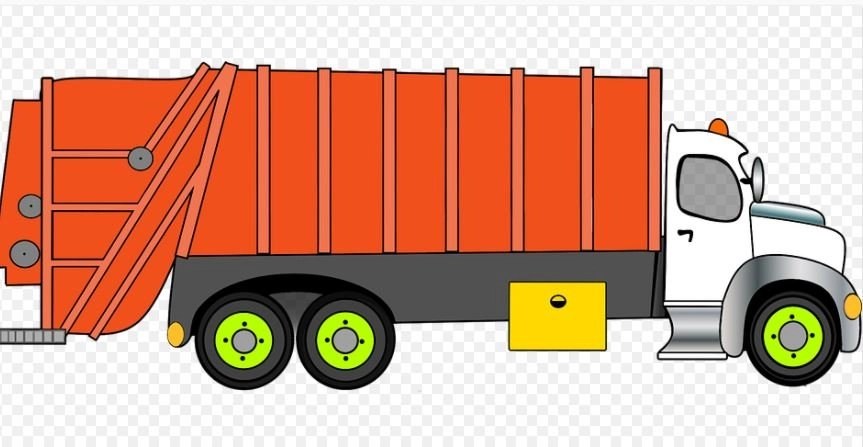
What is Waste Disposal?
Waste disposal includes the process by which waste materials are disposed of or thrown away. Waste management is the collection, transport, and processing of waste materials to reduce their effect on health, environment, aesthetics, and amenity. Waste disposal services include rubbish removal in the home, street sweepings, and litter collected in public places, overflowing dustbins or bins that have been subjected to illegal dumping. The waste consists of all discarded material that is abandoned or unwanted with no additional value to the owner (residents and businesses) once its initial purpose has been served. Waste can be solid, liquid, gaseous, radioactive, infectious, chemically reactive, biologically active, biodegradable, or non-biodegradable.
Meanwhile, some types of industrial waste have been legally defined, for example, in the Waste Framework Directive. Waste can affect humans and the environment. Waste disposal is crucial to human civilization, as improperly managed wastes may lead to various health concerns and natural disasters. Waste disposal includes any activity that removes waste material from wherever it is generated to be collected by a Waste Management company.
Waste management practices are not uniform among geographical regions, economic sectors, and local jurisdictions [regarding how they define their responsibilities, what services they provide, pricing structure, etc.]. These practices vary by the type of waste being handled. Waste management for non-hazardous residential and commercial waste typically involves the following steps: Waste collection, Waste removal, Waste transportation, Waste treatment, and Waste disposal.
The waste collection includes curbside or on-site collection provided by a municipality or Waste Disposal company. It typically involves using rear-load garbage trucks, which carry all unsorted wastes to transfer stations where they are unloaded using front-end loader garbage trucks, onto larger Waste vehicles for shipping to Waste Treatment plants. These trucks may be fully automated or manned. Waste Disposal companies may provide Waste Removal for businesses through a contract where rubbish is collected as often as required by the customer or specified in local laws. In many countries, Waste disposal companies are also responsible for waste treatment and sometimes have landfill facilities.
Many commercial businesses generate waste materials that they must dispose of to function within local laws. For example, a restaurant generates large amounts of organic garbage, kitchen grease in traps, used Dishwashing liquid, oily waste from the kitchen, broken glass or plastic, and Waste Disposal items dropped accidentally. As a result, Waste Management companies provide Waste Removal services to commercial businesses and Waste Disposal services.
People generate many types of wastes during their day-to-day activities. For example, this includes home maintenance and improvement activities such as carpentry waste and gardening, which produce organic garbage, sawdust, leaves and grass clippings, nails and screws from building materials, and bags of concrete. In addition, there are also household hazardous wastes generated from things like automotive fluids (e.g., motor oil), paints (e.g., paint thinner), pesticides, cleaners containing organic solvents, pesticide/fertilizer mixing containers, fluorescent light bulbs, etc. These wastes should not be mixed in with other wastes or poured down the drain.
Types of Wastes
Three main types of waste need to be managed to ensure safety and healthy environmental practices. These include household waste, commercial waste, and industrial waste. Household waste is the most commonly managed type of waste. However, many households still burn or dispose of household waste in open spaces without following acceptable disposal practices. The second type of waste includes commercial wastes produced by retailers, hotels, restaurants, etc. These wastes include food waste, paper waste, glass waste, etc. Last but not least comes Industrial wastes, which are often high in volumes and very harmful to human health and the environment. We can produce this type of waste during mining operations, manufacturing industries, gas stations, etc.
Methods/Types of Waste Disposal
Waste disposal can be done in several ways, the most common being:
- Waste disposal at sea
Waste reduction
Waste incineration
Waste recycling
1. Waste Disposal at Sea
Waste disposal at sea refers to any waste being dumped into water bodies. In most cases, this includes both drill cuttings and produced water from oil rigs and sediments containing pollutants such as heavy metals or hydrocarbons from oil spills. This type of waste disposal can have a detrimental effect on our oceans, causing contamination due to the many chemicals present in the waste. Coastal states with vessels or ships carry out waste disposal at sea. Waste can be disposed of in the open sea, usually by dumping it over the side of a ship or into water. However, it is not allowed in some areas due to environmental regulations. Waste disposal at sea includes:
- Waste from fishing vessels/trawlers
- Waste from oil production or storage facilities
- Waste from offshore installations
2. Waste Reduction:
Waste reduction means producing less waste in the first place, which means finding alternatives to things like disposable nappies, plastic shopping bags, or bottles for your drinks rather than repurchasing them every time you want something else. Waste reduction also helps not squander vital resources such as land, oil, gas, or water. When one thing gets thrown away, it reduces the amount of another thing available for someone in the future. It implies creating and using products in a way that they don’t end up as wastewater. For example, suppose there is no proper recycling system for electronic equipment in your city or country. In that case, it often ends up in landfills which pollute the soil and groundwater with toxic components such as mercury, lead, and cadmium. Waste reduction is a lot easier and less time-consuming than waste recycling, and it’s the way we should be going.
3. Waste Incineration:
Waste incineration is one of the more resource-intensive processes out there. But it does have benefits, such as generating electricity from waste power plants. Waste incinerators burn large amounts of waste and produce electricity and heat as a secondary effect. The energy that is produced can be used for industrial applications. It destroys harmful microorganisms in the trash, which reduces the number of pathogens in the environment following waste disposal. Waste incineration includes technologies such as:
- Waste to Energy (incinerating waste to produce energy);
Pyrolysis (where waste is heated in a low oxygen environment); and
Gasification (a form of high-temperature waste combustion).
This type of waste disposal is common in many European countries, faced with waste disposal due to densely populated areas.
4. Waste Recycling:
Almost every product we buy comes with a symbol for how it should be disposed of after it’s used up. We can find numbers such as 1 (paper), 2 (cardboard), 4 (plastic), and 5 (aluminum) on the list of waste symbols. Each number corresponds to a certain type of Waste. Number 1, for example, is often used for paper waste, whereas number 5 is often used for aluminum waste. Waste recycling is a waste disposal method that collects waste and processes it to make new products. These new products are environmentally friendly and don’t require further disposal to keep them from negatively affecting the environment.
Why is Waste Disposal so Important?
- Despite people’s best efforts to reduce their waste output, most of our rubbish still goes to landfill sites. That’s why it’s essential to dispose of all that rubbish properly. When we dump it somewhere, we almost always contaminate the soil and water surrounding the dumpsite with dangerous chemicals and pathogens. Waste usually contains hazardous constituents which release chemicals when waste disposal methods such as incineration are used. So, it’s crucial to dispose of our wastes properly to create a clean, waste-free environment.
Waste disposal is essential to maintain cleanliness in our homes and the streets within cities. It must be appropriately done so that it does not affect local waterways or bio-cycle. Improper waste disposal can lead to soil or water contamination, air pollution, human exposure, pest infestation, etc.
Efficient disposal of waste reduces risks and health hazards associated with mishandling waste. Waste disposal should be correctly done because it can lead to serious health hazards for people and animals if it’s not disposed of right. Waste will be produced throughout human existence, so we must ensure that we don’t pollute our environment with harmful chemicals.
Disposing waste properly also has economic importance. Waste disposal often saves organizations money by reducing expenses, and it helps to conserve natural resources and makes good financial sense by reducing the need for raw materials. Waste Management companies help organizations comply with Federal, State, and Local environmental mandates, saving up to thousands of dollars per year through recycling programs alone. By recycling certain materials such as glass, metals & plastics, we can save energy in manufacturing processes like making new bottles or cars using recycled items instead of using old mining equipment or creating entirely new material from scratch.
Waste Management also helps reduce greenhouse gas emissions from waste decomposition in landfills. Garbage contains food scraps, yard trimmings, and many different types of biodegradable materials. This organic waste rots and produces methane as it decomposes in landfills, a potent greenhouse gas with 21 times the global warming potential of carbon dioxide. Methane is released into the atmosphere as well as leachate, which contaminates nearby groundwater and air quality. Proper disposal of this waste will significantly reduce land contamination and global warming.
In conclusion, Waste disposal is an essential aspect of everyday life on Earth, and it is vital for protecting our environment and ourselves. We can all help by reducing waste at home, sorting, recycling properly, composting organic waste, using less plastic and paper products overall, purchasing items with minimal or recyclable packaging, volunteering, etc. No matter how small our actions may seem, they can make a difference to our environment!



